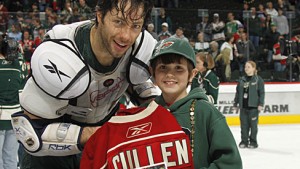 Last Friday I left you considering the cause and effect of the sports industry on professional football players. I showed in Part I how athletes are developed, and I detailed some of the common career events in professional football. Lets dig a little deeper now and explore the football player we see off the field. Why does the ‘Don’t You Know Who I Am?’ attitude exist?
Last Friday I left you considering the cause and effect of the sports industry on professional football players. I showed in Part I how athletes are developed, and I detailed some of the common career events in professional football. Lets dig a little deeper now and explore the football player we see off the field. Why does the ‘Don’t You Know Who I Am?’ attitude exist?
A New Beginning
Consider the fact that most professional athletes never really had exposure to having to live within all of the rules before: They have always been slightly above the law. Even in college, tickets and violations are magically wiped away, and this carries over to the pros. Special attention is given to them to make sure they pass their college courses: There is not necessarily even effort to help them learn the material, just pass the course. A whole athletic staff exists in both college and the pros to strictly assist athletes with financial needs, medical issues, equipment requests, life skills, etc…
Exceptions have always been made for them, and extra accommodations have always existed, often without them ever asking for them! How difficult it must be to remain humble when you do not have to be mature, everybody is your biggest fan, money is thrown at you, and other people take care of your responsibilities. How can we expect these men in their young 20’s to be mature!? We haven’t encouraged a system where they get a good education; not only to develop a skill for a professional job, but to support themselves in case their football career falls in line with the average lifespan of 3 years or less. How can we expect them to know that a minor law infraction is applied to everyone? How can we expect them to be savvy with their money and invest, rather than spending it on material items or alcohol? This is what they know, and it’s just as much our fault for not teaching them and helping them mature so that they know better!
The Workout Trail
The first few times a player is released, they typically adopt a bit of an attitude. Barring immediate interest, they are forced to travel around the country working out for teams. Teams fly in players to see if their current skill level is high enough to bump somebody else from the roster. At these workouts, they compete against numerous other available players at the same position. They are measured and timed the same as if they were in college coming out for the NFL Draft. Only this time there is no hype, no allure of being drafted, and no luxurious amenities.
At the workout, they no longer have a priority status from team staff, and they often have to bring their own workout gear. Most often, the workout results in a team thanking the player for coming and flying him home right after the workout. No contract, no job, no preferential treatment, and no longer admired as a top talent. This is a tremendous shock to their systems and everything they have ever known and been told! Some veterans quickly embrace it, are gracious, and are willing to do whatever it takes to make it for the next team. But most of these players on the workout trail quickly fall out of favor and quietly retire, especially if they do not continue to train, prepare, and embrace the fact that they will have to prove themselves again and again as they workout for teams.
 Bottom Dollar
Bottom Dollar
Similar to starting the workout process, a player often feels the same sense of abandonment when they are forced to sign a minimum salary contract. Typically once it is determined that a player has the talent to play in the NFL but possesses no special attributes that elevate him over everyone else, teams no longer seek out that player. Instead, he is used for depth on the roster, especially if he can contribute on special teams. Teams do not have to fight over these players, because there is no demand for them. They are a “dime a dozen.” Consequently, these players are told by their agents that only one or two offers exist, and the offers are simply one year deals for the minimum salary under the NFL Collective Bargaining Agreement.
Relative to the player’s previous contract(s), this seems ridiculously low! But this is where the demand is, and the player is either forced to take a small contract and relocate his family to stay in the NFL, or move on with life. This usually comes as a culture shock, because players typically do not plan for life after the NFL: They believe they will keep playing in the League until they are ready to hang it up. In reality, typically players ‘are retired’ due to a lack of interest by teams. (More on this in a later column.) Once the initial response of being insulted wears off, one can see the “Don’t You Know Who I Am” persona shine through. Again, they’ve always known the best of the best, but now teams are telling them that they are barely average?!
 Who Is To Blame?
Who Is To Blame?
The inability to see the fake world they live in is a sad by-product of the way the sports industry has raised them. It spills over into all aspects of their life. The worship of fans, positive words of friends and family, bold predictions from agents, adoration of the media, praise of coaches, and exceptions applied to their life has thrust them into a lifestyle that isn’t real. They often don’t see that their talent is average compared to the other athletes in the NFL. They don’t know that they are being catered to and receiving special accommodations. They don’t realize if they are being arrogant or selfish. They don’t see the façade.
When they misstep or say the wrong thing or make a bad purchase or act with what appears to be an ego, HOW CAN WE SIT BACK AND JUDGE THEM!? How can we not call ourselves and the media hypocrites? The media wants stories, so they pump athletes up, only to be the first ones to deflate them and tear them down when they make a mistake or don’t make it in the NFL. We as fans and a society flock to them and offer nothing but words of adoration, only to turn around and speak negatively about the ridiculous amounts of money they have and how they spend it. If you were 22 with millions of dollars and nobody encouraging you to be fiscally responsible, how would you spend the money? You would spend it on the things you know to be fun, or what society tells you is fun. And guess what: There is nothing holding you back. You believe you can afford it all, even if perception is different from reality. Yes, universities have classes. Teams and the NFL League Office have programs to assist in educating players with life skills. But they are never forced to learn it, apply it, and sometimes they are not even mandated to attend.
Fortunately there are numerous players who have miraculously cut through the artificial world that threatens to bring them down. Instead, they are consummate professionals. I had relationships with numerous players that were mature beyond their years and experiences. On numerous occasions, they gave generously to me personally, above and beyond what they did for the community, charities, family, friends, etc… One player went out of his way to drive to the team facility to surprise my younger brother and play catch with him. One player sat down with me and prayed with me when I was sick.
Another player was kind enough to stop over at the end of a hot practice and have a 10 minute conversation with my friend. Yet another took the time to personalize and sign a jersey for a family member. And one player even selflessly made the drive to a restaurant on his day off to surprise my father and have lunch with him. Keep in mind that each and every one of these occurrences occurred within the player’s free time, and they didn’t owe me anything, even if I did ask politely. The only thing I could actually offer in return was my genuine thanks. So how could we possibly label these men as bad guys or spoiled brats??? A stereotype should not exist, and they should not be to blame.
 The Origin
The Origin
The ‘Don’t You Know Who I Am?’ personality is simply a natural reaction to an event in a player’s career that extends beyond the world they have known. While they never say those words, you can see it in how they talk and act, and it manifests simply because they don’t know how else to respond. I hope and pray that each and every college football player is taught how to be a respectful gentleman by his parents, truly invests in his education, makes sound financial investments, seeks out sound guidance and counsel from school administrators, and learns the life skills necessary to make it in life, during and after the NFL. But the world that is presented to them doesn’t encourage such actions or foster such a lifestyle. Sure, sometimes players carry their egos too far, but most times they are simply acting upon what they know, living in a world that we have created for them. They make mistakes and will learn from them, just like you and I.
So the next time you begin to form an opinion about how a player is spoiled or immature or presents a ‘Don’t You Know Who I Really Am?’ persona, ask yourself the following question: “Am I being a hypocrite if I say, think or believe this statement?” After all, we have made every effort to force them into that exact mold.
The question for all of us remains: Who is really to blame? Check back next Friday for more exclusive content!
Do you have comments or feedback for Joe? Contact him directly. Also make sure to tweet out to us @SportsNetworker



Are you in charge of cooking the turkey this year at your Thanksgiving or Friendsgiving feast? If so, you’ve come to the right place.
Your turkey needs plenty of time to defrost evenly before spending any quality time in the oven.